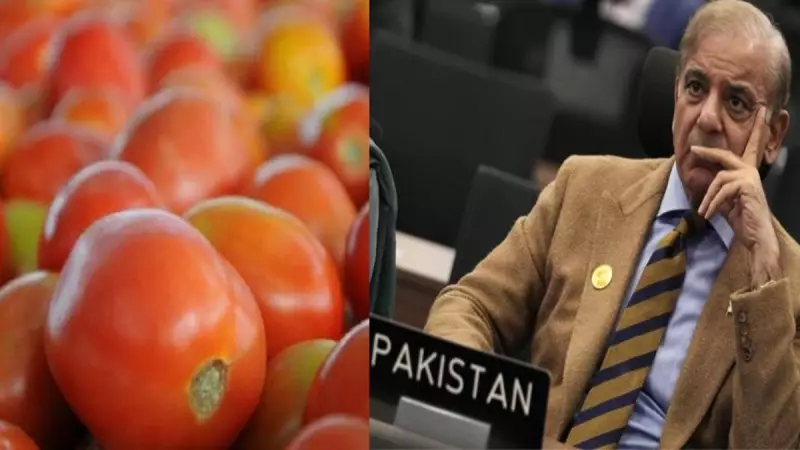
Pakistan is grappling with an unprecedented tomato crisis that has sent shockwaves through markets across the country. The sudden price surge, which has seen tomatoes become a luxury item for many households, stems directly from the closure of key border crossings with Afghanistan.
The Price Shock: From Staple to Luxury
Market data reveals a staggering 400% increase in tomato prices within days, transforming this kitchen essential into an unaffordable commodity for average consumers. Where tomatoes once sold for reasonable rates, they now command prices that have forced many families to eliminate them from their daily meals entirely.
Border Closure: The Root Cause
The Torkham border crossing, a vital trade artery between Pakistan and Afghanistan, has been completely shut down. This closure has severed the primary supply route for tomatoes and other fresh produce that typically flows into Pakistani markets. The disruption has created immediate shortages and triggered panic buying among those who can still afford the inflated prices.
Impact on Daily Life and Economy
The tomato price crisis extends beyond household kitchens. Restaurant owners, street food vendors, and the hospitality industry are all feeling the pinch, with many forced to either absorb the extra costs or remove tomato-based dishes from their menus entirely. The situation highlights Pakistan's vulnerability to supply chain disruptions and its dependence on cross-border trade for essential food items.
Market Reactions and Consumer Despair
Local markets tell a story of frustration and adaptation. Consumers express disbelief at seeing tomato prices reach levels they never imagined possible. Many are turning to alternatives or simply going without, while traders struggle to source whatever limited supplies remain available through alternative, more expensive routes.
As the border closure continues with no immediate resolution in sight, economists warn that the tomato crisis could be a precursor to broader food inflation affecting other essential commodities. The situation underscores the interconnected nature of regional trade and how political decisions at borders can directly impact the plates of ordinary citizens.






